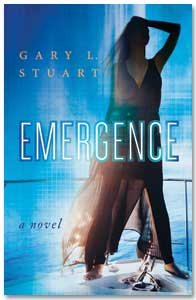“Originality is undetected plagiarism.”
William Inge
T.S. Elliot[1] famously said, “Mediocre writers borrow, great writers steal.” As always, he put it plainly. Ralph Waldo Emerson put it obliquely: “Commit a crime and the earth is made of glass.”[2]
Inga Simpson[3] spoke at length:
“The ethics of writing are rather like the ethics of life: hard to define, open to interpretation, and vulnerable to corruption for love, money, success or revenge. As an art form, writing affords us certain privileges . . . Perhaps it is naive to expect ethical behavior from our author stars. After all, (fiction) writers are liars and thieves. We make stuff up, bend reality, manipulate the truth. We steal things people say and do constantly—things seen, or overheard on trains, at the dinner table, in the doctor’s surgery—and incorporate them into our books, stories and poems. We steal stories, too. Real life tragedies from a little column in the newspaper, anecdotes told at work over morning tea, a friend’s relationship drama poured out over coffee or gin. We tend to view this generously, as a kind of beachcombing; picking and gathering from the tales washed up before us. We are collecting ‘material’ or conducting ‘research.’ I remember the first time I did this. It was at a party, listening to a colleague talk about his experience being evacuated from a Pacific island, gunfire sounding across the tarmac. I was writing a crime novel at the time, with a former spy as my protagonist, who I had given a backstory in Asia, so I pricked up my ears. Asked a few questions. I learned that by the time you hear gunshots, it is too late to duck (from that round anyway) because the bullets are already past you. I knew immediately how I would use this. My eyes must have taken on a certain shine, because a good friend at my elbow, a very clever fellow, waited until the conversation was nearly done before saying, ‘You know she’s going to use this, don’t you? It will turn up in a book somewhere.’ Absolutely.”
I could cite thousands of successful writers who steal words. Snatches of words. But never full sentences. We don’t plagiarize, we just borrow. There’s a T-Shirt for sale somewhere that says, “Be careful what you say. It might end up in my novel.” There are websites urging writers to steal words from other writers.[4] I’m not above it. There’s nothing original in the world. Good writers are always stealing ideas from each other and recycling stories. It’s expected. And it’s natural. And the last five sentences above prove it. They came from one website cited in footnote number 4 to this blog. Dillinger stole from banks because that’s where the money was. Writers steal from other writers because that’s where the best words are.
[1] Thomas Stearns Eliot, OM, was an essayist, publisher, playwright, literary and social critic, and “one of the twentieth century’s major poets”. Born in St. Louis, Missouri, in the United States, to a prominent Boston Brahmin family, he moved to England in 1914 at the age of 25, settling, working, and marrying there. He became a British subject in 1927 at the age of 39, renouncing his American passport. https://en.wikipedia.org/wiki/T.S._Elliot
[2] Ralph Waldo Emerson, “Compensation.” Essays; First Series.
[3] Inga is an Australian novelist and nature writer. UNDERSTORY: a life with trees (2017), about her decade spent living inside a south east Queensland forest, was shortlisted for the Adelaide Writers Week Award for Nonfiction. See, www.ingasimpson.com.au
[4] https://www.helpingwritersbecomeauthors.com/why-you-should-steal-from-other-authors/
https://killzoneblog.com/2014/05/stealing-from-other-writers.html
https://www.thecreativepenn.com/2009/11/17/why-do-great-writers-steal
https://www.writingforward.com/…/other-peoples-writing-ideas





 I am an author and a part-time lawyer with a focus on ethics and professional discipline. I teach creative writing and ethics to law students at Arizona State University.
I am an author and a part-time lawyer with a focus on ethics and professional discipline. I teach creative writing and ethics to law students at Arizona State University.  My latest novel is Emergence, the sequel to Let’s Disappear.
My latest novel is Emergence, the sequel to Let’s Disappear.  If you have an important story you want told, you can commission me to write it for you.
If you have an important story you want told, you can commission me to write it for you.